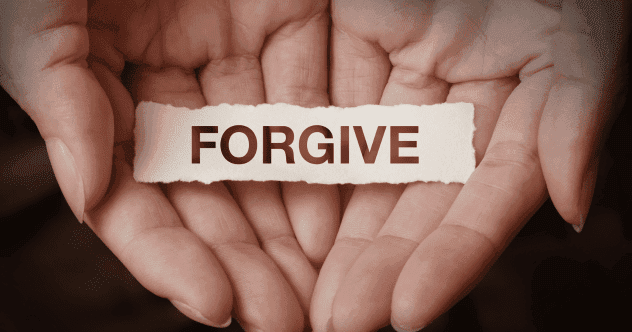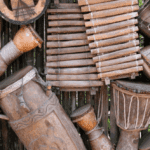Forgiveness is a powerful virtue that can transform lives and heal deep wounds. Let’s explore ten extraordinary acts of forgiveness in the face of adversity, showcasing the profound impact that it can have on individuals and the world.
Nelson Mandela’s Forgiveness of Apartheid Oppressors
Nelson Mandela’s journey from prisoner to president is a testament to the power of forgiveness. After enduring 27 years of imprisonment for his anti-apartheid activism, Mandela emerged with a heart inclined toward forgiveness. This act wasn’t just personal; it was a strategic move that changed South Africa’s history.
Mandela’s choice defied the cycle of retribution created by apartheid. His commitment to reconciliation dismantled apartheid, ushering in an era of equality and justice. Instead of seeking revenge, he offered dialogue and unity.
The Amish Community’s Forgiveness After a School Shooting
In 2006, a tragic school shooting in an Amish community in Pennsylvania claimed the lives of five young girls. The community’s response demonstrated compassion, forgiveness, and unwavering faith.
The Amish community’s immediate forgiveness of the shooter’s family showcased their core values. They extended condolences and support, recognizing that healing could transcend tragedy. This act underscored their belief in Jesus Christ’s teachings and the unity of humanity.
Thich Quang Duc’s Self-Immolation as a Message of Forgiveness
In 1963, Buddhist monk Thich Quang Duc’s self-immolation was a powerful message of nonviolent resistance and forgiveness amidst oppression. His act protested the Vietnamese government’s repressive policies and embodied his commitment to peace.
Thich Quang Duc sought to communicate compassion by ending his life through fire. His actions rejected hatred, defying the regime without harming others. This act demonstrated that justice can be achieved through inner transformation.
The image of his self-immolation stirred the world’s conscience, symbolizing the spirit of those willing to suffer for a higher cause. It underscored his message of forgiveness by showing his peaceful posture amidst the flames.
The Forgiveness of Archbishop Desmond Tutu
Archbishop Desmond Tutu was a beacon of hope during South Africa’s transition to democracy. His legacy is marked by his efforts to promote forgiveness and reconciliation.
As head of the Truth and Reconciliation Commission, Tutu created a process that helped heal the wounds of apartheid. Victims and perpetrators shared their stories, fostering empathy. Tutu’s commitment to forgiveness allowed the nation to confront its history with courage.
The Power of Forgiveness in the Rwandan Genocide
The Rwandan genocide in 1994 left deep scars on the nation. Amid the devastation, forgiveness emerged as a force for healing and reconciliation.
Forgiveness became a cornerstone of Rwanda’s recovery. Survivors and perpetrators showed acts of forgiveness. This choice shifted the narrative from violence to empathy and reconstruction.
Immaculée Ilibagiza, a genocide survivor who forgave her family’s killers, showcases the power of compassion. Her journey illustrates that forgiveness can reshape the future.
The Charleston Church Shooting Forgiveness
In 2015, a white supremacist’s attack on a Charleston church claimed the lives of nine African-American parishioners. What followed was a display of resilience and compassion.
During the shooter’s court appearance, the victims’ families extended forgiveness. This act demonstrated the power of faith in overcoming grief and anger.
Eva Kor’s Forgiveness of Auschwitz Perpetrators
Holocaust survivor Eva Kor’s forgiveness toward Auschwitz guards embodies resilience. Her decision wasn’t an endorsement of the crimes but an assertion of her emotional well-being.
Eva’s forgiveness was a choice to liberate herself from anger. In forgiving, she reclaimed control, refusing to be defined by trauma. Her act asserted that she wouldn’t be defined solely by her suffering.
The Forgiveness Journey of Mary Johnson and Oshea Israel
Mary Johnson’s journey of forgiveness showcases the capacity for healing. After her son’s murder, Johnson pursued reconciliation, connecting with his killer, Oshea Israel.
Johnson’s choice to pursue forgiveness offers hope. By extending empathy towards Israel, she exemplifies the power of compassion. Their story shows that healing can emerge through forgiveness.
Their narrative resonates globally, teaching empathy and resilience. Forgiveness is strength, requiring confrontation of pain and channeling it toward positive change.
The Healing Power of Forgiveness in Conflict Zones
In conflict zones, forgiveness is a tool for healing and reconciliation. Organizations like the Forgiveness Project share stories, catalyzing shifts in perspective.
Ifrah Ahmed, a survivor of female genital mutilation in Somalia, forgave her oppressors, liberating herself from trauma. Her ability to extend forgiveness reflects the potential to dismantle cycles of revenge.
Parents’ Forgiveness in the Face of Their Child’s Death
Losing a child is a profound pain. Stories of resilience and forgiveness emerge within this landscape of grief. Azim Khamisa’s journey exemplifies this power.
After his son’s death, Azim Khamisa chose forgiveness, extending compassion to the responsible juvenile gang member. Through collaboration with Ples Felix, the perpetrator’s grandfather, Khamisa thwarted the cycle of violence.
Their alliance reveals that forgiveness can dismantle hatred and create positive change. This initiative, fostering youth development, demonstrates that forgiveness can transform lives and prevent future violence.
These acts of forgiveness showcase the human capacity to heal and reconcile, even in the face of unimaginable adversity. Forgiveness isn’t easy, but its transformative power can create a better world.
What are your thoughts on these inspiring stories? Leave your comment below!










